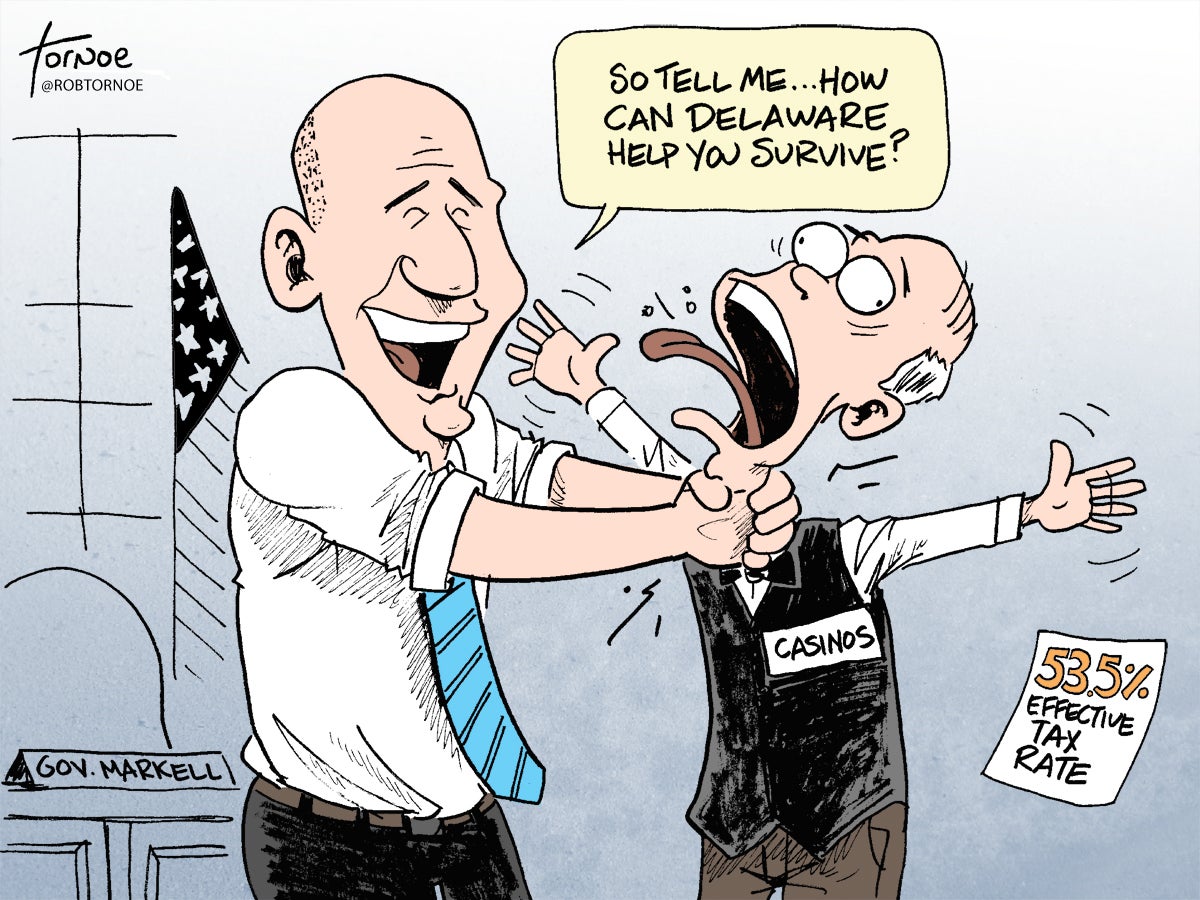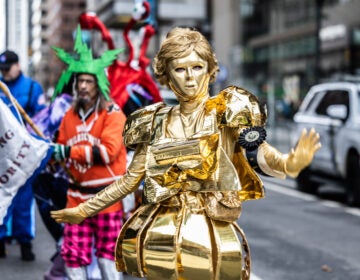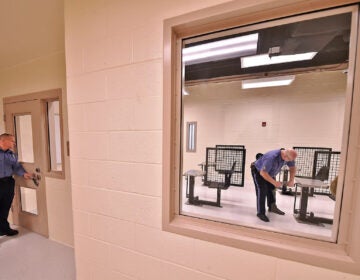The Delaware casino dilemma: jobs vs bailout

Are Delaware lawmakers killing their golden goose?

Here’s Rob’s commentary:
Delaware lawmakers are killing the golden goose
As someone who has been at odds with the state’s casinos in the past (Dover Downs once pulled its advertising out of the Dover Post over a critical cartoon I drew), I have to say I surprised myself when I was coming up with ideas for today’s cartoon.
Could I actuality be sympathizing with Delaware’s beleaguered casinos?
In recent years, things have taken a turn for the worse for our three former cash cows, as out-of-state competition has drawn away gamblers and threatens Delaware’s entire casino industry.
Once basically given a license to print money, Dover Downs actually lost $352,000 in the first quarter of 2015, leading to the elimination of 24 positions and the closing of overnight table game operations. I guess the house doesn’t always win, after all.
Overall, Dover Downs, the state’s largest casino, has been forced to eliminate 31 positions over the last 15 months. They also reported an overall year-end loss of $706,000 last year, the first time that’s happened since the casino added slot machines in 1996.
Harrington Raceway doesn’t seem to be faring much better, and Delaware Park will face new competition next year when the MGM National Harbor opens in Prince George’s County, Maryland.
So if greater out-of-state competition is hurting Delaware’s casinos, why have I drawn Gov. Jack Markell choking the industry to death?
Delaware’s budget is more depended on the tax revenue generated by its casinos than just about any other state. It’s the state’s fourth highest source of funding, accounting for about 6 percent of the money in the state budget. To look at it a different way, our three casinos generate more tax revenue that all the corporations operating in Delaware combined. It even rivals the amount generated by the state’s gross receipts tax.
Since 1995, taxes on our casinos have been raised numerous times, including in 2009 when the state increased its tax on slot revenues to 43.5 percent. Compare that to Atlantic City and Mississippi, where the gaming tax rate is 8 percent, or even to Las Vegas, where the tax on cross gaming revenue sits at 6.75 percent.
On top of that, another 10.75 percent goes for harness races (9 percent in Thoroughbred races). Plus, slot machine vendors take their cut, which comes to about 9 percent. So all told, for every dollar someone gambles in their casinos, operators in the state get to keep 41 cents at most.
That might have been fine in the heady days of little competition and local printing presses consistently filling Dover’s coffers, but the reality is much different, and if the state doesn’t act, more jobs could be lost, or a casino or two could be forced to close.
And yet, a bill that would lower the table game rate, eliminate the license fee and provide marketing and capital credits sits motionless in Legislative Hall, where lawmakers told the News Journal that it won’t be considered this year.
“Right now, it’s not a priority, but we’ll see how things unfold,” Chairman Sen. Harris McDowell, D-Wilmington said.
Not a priority? The state’s fourth largest revenue source is not a priority?
Lawmakers in Dover act as though they’re calm and in control, but they’re no better than the hopeless, glazed-eye addicts you see endlessly feeding quarters into their slot machine. There’s little hope in a big payout for them, and there’s certainly no hope for McDowell and other legislators who think continuing the pull the lever will end with a massive payout.
It’s past time lawmakers realize the days of a limitless pot of money provided by our casinos is over. It was always a bad idea for the state to act as a gambling pimp while operating as the addict’s support network. But now lawmakers have been forced into the role of the addict, and with no new revenue sources on the horizon, all choices from here on out are bad choices.
The state needs its three casinos more than ever, so uninterested lawmakers need to get on the same page and realize they’re just going to have to learn to do more with less, which is better than going bust.
——
Rob Tornoe is a cartoonist and WHYY contributor. Follow Rob on Twitter @RobTornoe
WHYY is your source for fact-based, in-depth journalism and information. As a nonprofit organization, we rely on financial support from readers like you. Please give today.





